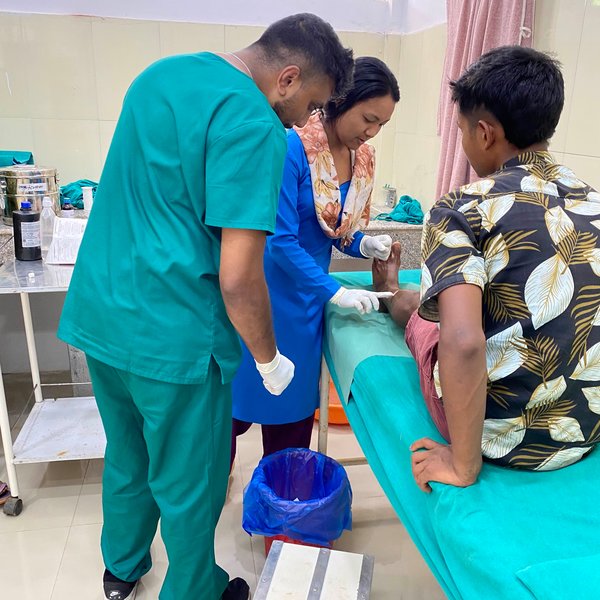WHAT IS AN OVERSEAS Paramedicine INTERNSHIP WITH WORK THE WORLD?
A paramedic internship abroad is a placement undertaken in a low-resource, high-patient volume hospital in the developing world.
You’ll see just how different from your own a healthcare system can be. And you’ll see conditions and practices you’ve never encountered.
It’s worth noting that paramedics and ambulance services are luxuries of the developed world. Your role in our destinations is focused more on emergency medicine.
You’ll see how local staff deal with emergency cases with limited resources, learn how sociocultural issues affect how care is delivered (there’s less of a sense of urgency in some destinations), and see practises that you just won’t see at home, like manual intubation.
WHAT ARE THE BENEFITS OF A paramedic iNTERNSHIP ABROAD?
We’ve designed our internships to help set you (and your resumé) apart from all the other paramedic students who graduate every year.
On one of our internships you’ll:
- Expand your clinical knowledge and skill set
- Develop your confidence and resourcefulness
- Build your personal and professional network
- Sharpen your verbal and non-verbal communication
- Become more attractive to employers
The best part is that your hospital placement runs Monday to Friday, leaving your evenings and weekends free. That means you have plenty of time to go and explore whichever country you’ve chosen.
WHO ARE WE?
We're Work the World — Recognized experts in planning, customizing, and building paramedic placements abroad. Founded in 2005, we've created internships for over 17,000+ students from more than 400 universities all over the world.
We provide a personal, end-to-end service that includes:
Internship customization (choose your destination and your areas of clinical interest) | Comprehensive pre-trip support | 24/7 in-country support team | Private, catered accommodation
Arrivals are every Sunday, 52 weeks a year, with durations from one week upwards.
For more detail about how our service works click here.
WHAT ARE THE REQUIREMENTS?
As long as you are enrolled on a Associate of Applied Science Degree in Paramedicine or you’re currently a National Registered Paramedic you are eligible to travel with us.
Please note that our placements are educational in their nature and designed to give you experience in a low resource hospital setting under the supervision of local qualified professionals.
STEP 1. SUBMIT AN INQUIRY
First, submit an inquiry using the form at the bottom of the page. Tell us where, when and why you want to travel as well as your current level of study.
STEP 2. WE'LL GET IN TOUCH
Next, a member of our consultation team will review your inquiry then call you to discuss your eligibility. They will also answer any questions you may have.
STEP 3. APPROVAL AND CONFIRMATION
Once we have confirmed your eligibility, you need to submit your application form and pay your registration fee. We will then confirm your placement and availability within 48 hours.
DESTINATIONS
Ghana - Takoradi

Find out more

On your EMS internship in Ghana, you’ll be focused on assisting with emergency care. Common cases include: RTAs, hernias, ectopias, hypo- and hyperglycemia, severe diarrhea, convulsions, and fractures. Certain sociocultural factors in Ghana affect how emergency care is delivered. So, there’s much less urgency in the ED than you’re familiar with. There’s a lack of resources here too, and that means local staff have to get creative with what they do have. If you're looking for a paramedic internship in Africa, Ghana is an excellent option.

Sri Lanka - Kandy

Find out more

You will undertake your paramedicine placement in Kandy's most prominent hospital for accident, emergency, and trauma patients. In the Emergency Treatment Unit, which, as you will see, has a very limited bed capacity, the volume of patients often exceeds the number of beds. So, most patients are treated while on trollies. You will almost certainly see resuscitations, but there are other treatments like anti-rabies serum administration and anti-venom administration that will be nothing like what you're used to at home.

Vietnam - Hue

Find out more

On your internship in Vietnam you’ll spend time in a teaching hospital. In the hospital’s ED you’ll see RTA’s, trauma, and cases of unfamiliar diseases. A lot of patients travel in from Vietnam’s most rural areas, so you’ll see that the patient demographic is mixed. This placement is unique in that Vietnamese hospitals use modern practices alongside more traditional approaches. You’ll see treatments you’ve never seen before. If you want to do a paramedic internship in Asia, Vietnam is an incredible option.

Philippines - Iloilo
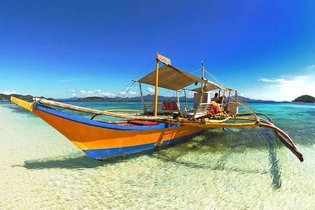
Find out more

Do your EMT internship in the Philippines and spend time in the ED, OBG emergency, and surgery. To give you some sense of scale, the ED here serves the whole island. You’ll start to see differences in both practice and resource from day one. Manual intubation is one example, and a lack of anesthesia is another. Patients typically present much later than you’re probably used to. And family members undertake a lot of bedside and general care — bagging for example. You’ll see cases of respiratory failure, gastroenteritis, burns, rabies, hernias, and hyperglycemia.

Tanzania - Dar es Salaam

Find out more

In Dar es Salaam, experience in the ED is a given, but you can also spend time in surgery. You do your internship here in a national referral hospital that hosts the city’s main ED. That means you’ll often see critical emergency cases. This is the only department of its kind in Tanzania, so some cases come from hundreds of miles away to be seen — this altogether redefines the idea of an ‘emergency’. You’ll see a lot of variance; sepsis (and multi-organ failure), acute respiratory distress syndrome, cerebral malaria, metabolic disorders, polytrauma, blunt trauma, and penetrating trauma too.

Kathmandu - Nepal

Find out more

Spend your time in a busy ED on your paramedicine elective in Kathmandu. The hospital does have an ambulance service, but patients most often make their own way to the ED. As a result, patients rarely receive on-scene or in-ambulance treatment prior to arrival. They’re often critically injured. As well as cases of trauma, you’ll see a number of advanced conditions — there are no primary care options in Nepal so patients often use the ED as a first port of call.

What is a paramedicine internships?
A paramedicine internship is a clinical rotation students can undertake in low-resource hospitals overseas. To create your own customized internship overseas, learn more here.
How old do you have to be for an internship?
You have to be at least 18 years old to undertake a hospital internship with Work the World. Apart from age, you need to be a college student enrolled in or accepted on a professional degree.
How long is a Work the World paramedicine internship?
A paramedicine internship is as long as you want it to be. Our minimum placement duration is one week with a maximum duration of 12 weeks. Costs vary depending on location and duration.
WHAT ARE THE BENEFITS OF A WORK THE WORLD PARAMEDICINE INTERNSHIP?
The benefits of our paramedicine placement include:
- Expanding your clinical knowledge and skill set
- Becoming more confident, independent and resourceful
- Making yourself more attractive to employers
- Doing some traveling
- Building your personal and professional network
- Sharpening your language and communication skills
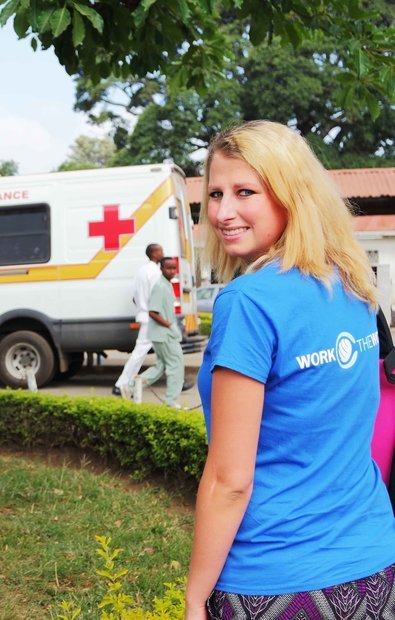
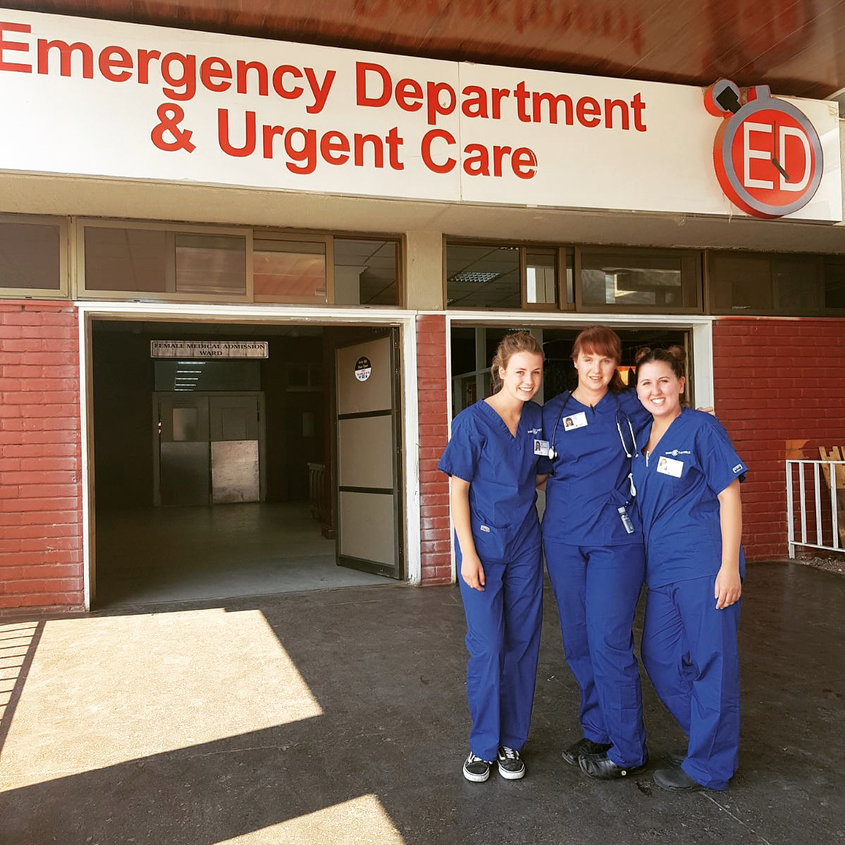

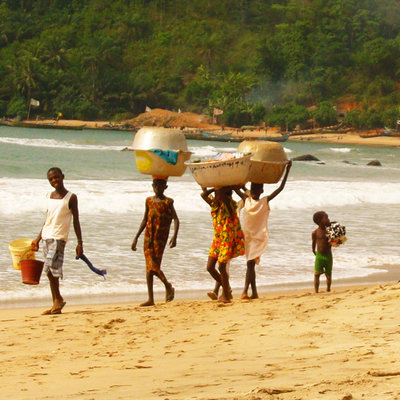
.jpeg)
